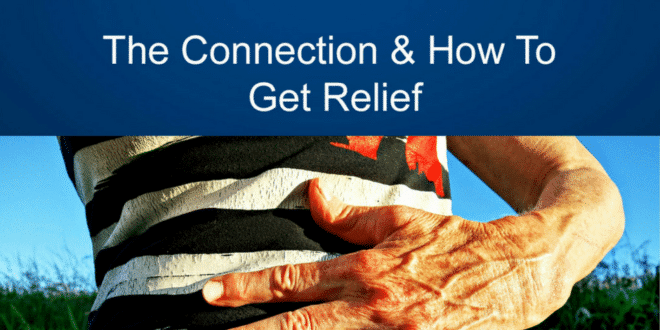Stress-related IBS (irritable bowel syndrome) is a bit of a “chicken or the egg” issue. Does stress cause the IBS, or does the IBS trigger stress?
What Is Stress?
Stress is a physical and mental response to situations we find challenging. Our stress response is rooted in our biological makeup, which goes back thousands of years. The stress response makes us feel as if we are under attack. This triggers a “fight or flight” series of hormones and chemicals such as adrenaline, cortisol, and norepinephrine. These get the body ready to either attack or run.
Read more => What do you need to do to more efficiently deal with stress?
What Is IBS?
IBS is a condition characterized by a range of symptoms, including:
- Abdominal pain
- Bloating
- Gas
- Diarrhea and constipation
Read more => Symptoms and Triggers of irritable bowel syndrome-IBS
The Connection between Stress and IBS
The reasons for the connection are not understood, but the following have been suggested:
- Stressed and anxious people often make poor food choices
- Stress can cause a range of digestive disorders
- Stress and anxiety may cause people to be more aware of the spasms in their colon
- IBS may be triggered by the immune system, and the immune system is affected by stress
Read More => How To Boost Your Immune System
Digestive Disorders and Mood Disorders
Studies have shown that around 60% of people being treated for digestive disorders, particularly IBS, also end up having one or more mood disorders. Around 60% suffer from stress and anxiety, and 20% from depression.
Some patients with IBS have noted triggers that can set off an attack. Keeping a Stress-related IBS diary can help you spot your triggers and counteract them.
Common Stress-related IBS triggers include:
- Menstrual periods
- Poor diet
- Working too hard
- Not getting enough sleep
- Dealing with stressful situations often, such as work issues and family problems
- Medications, including antibiotics and some antidepressants
- Anything containing the artificial sweetener sorbitol
Diet Stress-related IBS triggers
There are some diet triggers to watch out for, depending on whether you have constipation or diarrhea.
Constipation
Foods that can trigger constipation in stress-related IBS include:
- Bread and cereals made with refined and not whole grains
- Processed foods such as chips, cookies
- Coffee
- Soda
- Alcohol
- High-protein, low-carb diets, such as Atkins
- Dairy products, particular cheese
Solutions
- Women should get 25 grams of fiber a day, men 38, from fruits, vegetables, whole grains
- Drink plenty of water
- Go for a walk after meals – it works for puppies and people
- Try flaxseed and chia seeds; they are tasty and can aid in bowel movements
- Try a couple of prunes each day. They taste like raisins and can be chopped up and added to cereal and baked goods
Diarrhea
Foods that can trigger diarrhea in stress-related IBS include:
- Too much fiber, especially the insoluble kind (the kind that does not dissolve), such as the skin on fruits and vegetables
- Too much fruit, including dried fruit
- Chocolate
- Alcohol
- Caffeine
- Fructose (fruit sugar)
- Fruits that ferment, such as grapes and apples (and therefore avoid wine and cider)
- Sorbitol and other artificial sweeteners
- Soda
- Eating large meals
- Fried and fatty foods
- Dairy products; the symptoms might be from lactose intolerance (a problem digesting lactose, which is a form of sugar found in milk)
- Gluten, a plant protein found in wheat and barley, and products made from it unless they state they are gluten-free
- Certain antibiotics
Solutions
- Eat a small about of soluble fiber (that can dissolve in water) such as oatmeal and brown rice
- Avoid freezing food
- Avoid very hot food
- Don’t eat hot and cold food at the same time
- Steer clear of broccoli, onions, cabbage, Brussels sprouts, and large numbers of beans, which can cause gas and might trigger wind and feces passing
- Eat small meals throughout the day
- Don’t drink liquids when you eat. Drink plain water an hour before, or an hour after
- Consider going gluten-free. If symptoms persist, get tested for allergies
- Avoid too much-dried fruit
- Stay away from artificial sweeteners
- Exercise gently to relieve stress and normalize digestion
Since no one is sure whether stress causes IBS or IBS causes stress, it is important to manage both health issues proactively to stop each from contributing to the other and thus to a poor quality of life.
Fortunately, there is a lot you do to manage them both, using safe, natural methods with few risks of side effects. We’ve already discussed ways to stop your triggers for IBS. Let’s look next at the best ways to cope with stress and anxiety.
Read more
What Is A Stress Headache? Learn How to Treat It
Physical Signs and Symptoms of Stress
Natural Treatments of Stress Hives
How to beat anxiety with natural anxiety remedies
I would love to connect with you!
You can find me on PINTEREST, FACEBOOK, TWITTER1, TWITER2, INSTAGRAM or GOOGLE+








3 Comments
Anders
Interesting post, thank you for this!
I got diagnosed with burnout last year and one of the first things they asked me was if my stomach had crashed. I was lucky then though and my stomach wasn’t part of my problems. However, now a year later, whenever I get stressed I start feeling the kind of symptoms you describe here.
I appreciate the tips and suggestions in the article, thanks again!
ekuzevska
I’m glad you find this article helpful. It is our mission, to help people with our articles
Pingback: A Healthy Colon Is Needed For Keeping The Body Healthy And Detoxified - Healthy Lifestyle